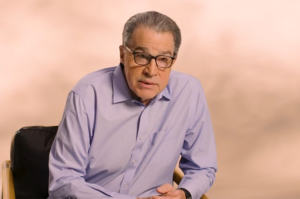Discussion on Religion, Homosexuality, Therapy Canceled Amid Protest
What was intended to be an academic symposium, or a "balanced" discussion, on religion, homosexuality and therapy has been canceled amid a wave of criticism from gay activists who painted the event as anything but.
"Homosexuality and Therapy: The Religious Dimension" was scheduled to take place in Washington, D.C., on Monday during the American Psychiatric Association (APA) Annual Meeting where some 19,000 attendees are expected. But the symposium was pulled from the meeting just days ahead of the event date, much to the praise of gay advocates.
The discussion panel, organized by David Scasta, a former APA president and a gay psychiatrist, was to include evangelicals the Rev. Albert Mohler, president of the Southern Baptist Theological Seminary, and Dr. Warren Throckmorton, a professor at Grove City College and past president of the American Mental Health Counselors Association. On the gay-affirming side was New Hampshire Bishop V. Gene Robinson – whose consecration in 2003 as an openly gay and noncelibate priest caused uproar in the global Anglican Communion. And the event was to be moderated by Harvard psychiatrist John Peteet.
In the days leading up to the May 5 event, however, Robinson backed out, stating that his participation would lend credibility to "reparative therapy," in which individuals come out of same-sex attractions.
"Conservatives, particularly Focus on the Family, were going to use this event to draw credibility to the so-called reparative therapy movement," Robinson said, according to the Washington Blade, a gay newspaper. "It became clear to me in the last couple of weeks that just my showing up and letting this event happen ... lends credibility to that so-called therapy."
While some gay activists argued that the event somehow implies that the APA endorses ex-gay therapy or provides the religious right with legitimacy, Throckmorton simply said it's not true.
"It wasn't about 'change' conversations. It was more about how to work with religiously committed people who are same-sex attracted," Throckmorton said to The Christian Post.
Throckmorton had planned on presenting the largely unaddressed question of what should mental health professionals do when they face clients who have a religious commitment that forbids homosexual behavior and are struggling with same-sex attractions.
The event wasn't intended to be a debate, Throckmorton clarified, but an "academic symposium" where views are presented, psychiatrists ask questions and raised issues are discussed. Robinson was scheduled to talk about what pastors should do from a gay-affirming perspective and Mohler, from a non-gay-affirming perspective.
Throckmorton's aim, also as a non-gay-affirming religious person in the discussion, wasn't to promote reparative therapy but to simply raise the issue of how professionals should operate when dealing with such conflicted individuals.
Outbursts by gay activists were mainly due to misinformation and many did not know what the symposium was about, Scasta noted, re-emphasizing that it wasn't about reparative therapy.
Gay activists raised skepticism that the event was a "balanced" discussion, as Scasta had described it and largely denounced Throckmorton's participation, mainly arguing that his therapeutic approach has not been subjected to any clinical studies reported in peer-reviewed professional journals, as Gay City News reported. His academic work, however, has been published by journals of the American Psychological Association, the American Mental Health Counseling Association and the Christian Association for Psychological Studies.
Throckmorton had participated in a nearly identical program last year at the American Psychological Association's meeting but did not hear any protests then, he noted.
When Robinson withdrew his participation, organizers tried looking for a replacement but with short notice and the media hype, it was difficult to find someone, particularly one of similar stature to Mohler, Scasta told The Christian Post.
Without Robinson or a replacement, the panel was unbalanced, Scasta said, explaining his decision to cancel.
An APA official said the association had nothing to do with the cancellation of the event and that is was Scasta's decision to withdraw since "a key participant who would have brought balance to the discussion had withdrawn."
But a statement by the APA also indicated that some in the association wanted the event pulled.
"Misinformation and rhetoric surrounding this event had risen to a level that would hinder the kind of open dialogue and interaction that was originally anticipated," the statement read, according to WorldNetDaily.
The APA had approved the symposium to be held this week among hundreds of other sessions. Topics presented at the session would not have reflected any official APA endorsement, said Jack Drescher, past chair of APA's Committee on GLB Issues.
The APA holds that homosexuality is not a mental disorder and opposes efforts to change a person's sexual orientation.
Although Throckmorton believes the symposium should have gone forward even without Robinson so that psychiatrists can hear from different professional responses to situations involving religiously committed individuals and homosexuality, the APA leadership indicated that they would try to hold the event next year, according to Throckmorton.
"The idea is there will be some effort to continue some common ground discussion," he said.



























